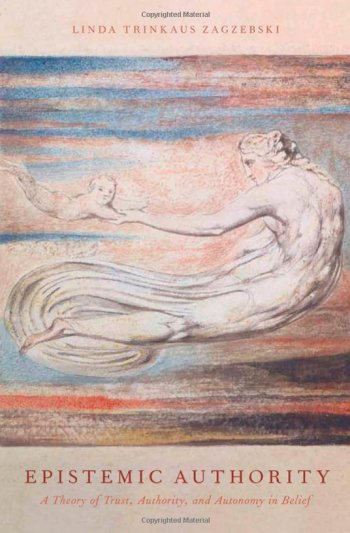Book Review
Epistemic Authority
A theory of trust, authority and
autonomy in belief
Linda Trinkaus Zagzebski
Oxford
ISBN 978-0-19-993647-2
 The
current trend in so much that passes for medical ethics is to
claim that autonomy trumps everything else. So when deciding on
abortion, what matters, according to this view, is "choice." In
contrast, we surely ought to believe that truth rather than
autonomy is what leads to human flourishing.
The
current trend in so much that passes for medical ethics is to
claim that autonomy trumps everything else. So when deciding on
abortion, what matters, according to this view, is "choice." In
contrast, we surely ought to believe that truth rather than
autonomy is what leads to human flourishing.
The author of this important work argues that a false understanding of autonomy leads to a false understanding of epistemic authority, that is, our human knowledge of reality. The secularist and the Catholic both agree that we ought to act on what we believe. But the secularist adopts the untennable view that any turning away from oneself is a violation of autonomy. Seeking advice is thus unacceptable.
The author points out that if we hold to epistemic autonomy, then we have to accept that some others will make the right decision better than ourselves. If there is a source that will help us make the right decision, that source is surely a legitimate source of epistemic authority.
The author notes that the epistemic egoist claims to rely on himself alone. But far from liberation, this could lead to selfishness and a rejection of truth. The knowledge of truth is more important than autonomy.
The author notes that there are communities to help us form our conscience and are therefore authorities that demand a right to epistemic obedience. From all this, it follows that obedience to Church teaching does not lead to slavery. Rather it liberates us for it enables us to know the truth. And the truth alone sets us free.
REVIEWED BY DR PRAVIN THEVATHASAN
